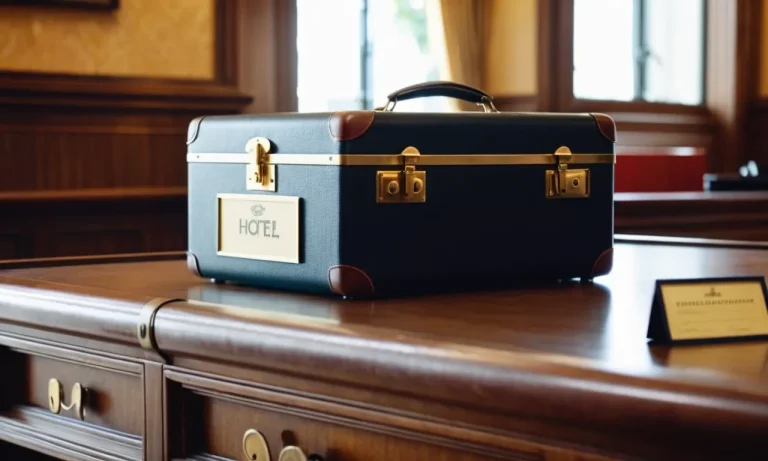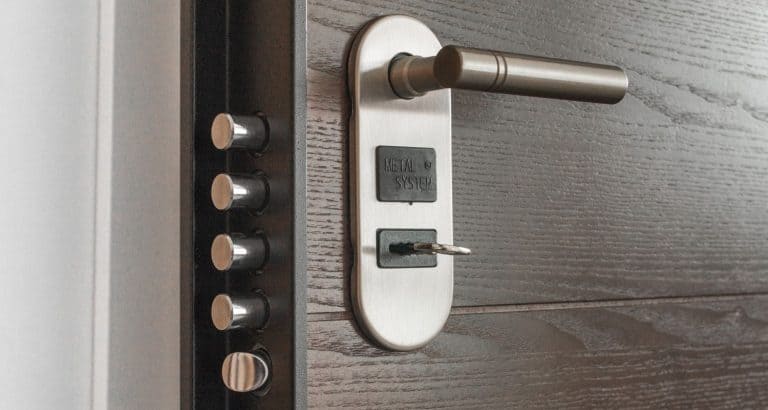Hotel Room Damage Charges: A Comprehensive Guide
Have you ever found yourself in a situation where you’ve accidentally caused damage to a hotel room during your stay? It’s a scenario that can be both stressful and financially burdensome. Hotel room damage charges can quickly add up, leaving you with an unexpected bill to pay.
If you’re short on time, here’s a quick answer to your question: Hotel room damage charges are fees imposed by hotels to cover the cost of repairing or replacing items that have been damaged or lost during a guest’s stay.
These charges can vary widely depending on the extent of the damage and the hotel’s policies.
In this comprehensive article, we’ll delve into the intricacies of hotel room damage charges, exploring what they entail, common scenarios that lead to these charges, and strategies for avoiding or mitigating them.
We’ll also provide insights into negotiating with hotels and understanding your rights as a guest.
Understanding Hotel Room Damage Charges
Ah, the joy of a hotel stay – a chance to relax, unwind, and create lasting memories. But what happens when your adventure takes an unexpected turn, and you accidentally cause some damage to your room? Don’t panic!
We’re here to demystify the often-dreaded hotel room damage charges and help you navigate this situation with confidence.
What Constitutes Damage?
Before we dive into the nitty-gritty, let’s define what constitutes damage in a hotel room. Essentially, any alteration or destruction of the room’s furnishings, fixtures, or overall condition beyond normal wear and tear can be considered damage.
This can range from spills and stains on carpets or furniture to broken windows, damaged walls, or missing items.
Common Types of Damage
- Stains and spills on bedding, carpets, or upholstery
- Broken furniture or fixtures (lamps, mirrors, tables, etc.)
- Burn marks or holes in carpets, curtains, or bedding
- Damage to walls (holes, crayon markings, etc.)
- Broken windows or damaged window coverings
- Missing items (towels, robes, electronics, etc.)
According to a survey by Hotel News Now, the most common types of damage reported by hotels are stains on bedding and carpets, followed by broken furniture and fixtures.
Hotel Policies and Procedures
Most hotels have well-defined policies and procedures in place to handle room damage charges. Upon check-in, you may be asked to provide a credit card for incidentals, which can be used to cover any damages incurred during your stay.
It’s essential to review the hotel’s damage policy and understand what constitutes chargeable damage.
If damage occurs, hotels typically follow these steps:
- Assess the extent of the damage and document it with photos or reports.
- Notify the guest and provide an estimate of the repair or replacement costs.
- Charge the guest’s credit card on file or request immediate payment.
- In severe cases, the hotel may involve law enforcement or pursue legal action.
According to a study by the American Hotel & Lodging Association, the average cost of repairing or replacing damaged items in a hotel room can range from a few dollars for minor stains to thousands of dollars for extensive damage. Don’t let those numbers scare you, though!
Most hotels are reasonable and understanding, as long as you’re upfront and cooperative.
Remember, honesty is the best policy. If you accidentally cause damage, don’t try to hide it or sneak out without reporting it. Instead, be proactive and inform the hotel staff immediately. They’ll appreciate your transparency, and you may even be able to negotiate a more reasonable resolution.
After all, accidents happen, and hotels understand that their guests are only human (well, most of the time 😉).
Scenarios That Lead to Hotel Room Damage Charges
When you check into a hotel, you expect a clean, well-maintained room where you can relax and unwind. However, accidents happen, and sometimes, guests inadvertently cause damage to the room or its contents. In such cases, the hotel may charge you for the repairs or replacements.
Understanding the common scenarios that lead to hotel room damage charges can help you avoid hefty bills and ensure a hassle-free stay.
Accidental Damage
Accidents are an inevitable part of life, and they can occur even in the most controlled environments. In a hotel room, accidental damage can range from spilling a drink on the carpet or bedding to knocking over a lamp or breaking a mirror.
While hotels understand that accidents happen, they may still charge you for the cost of cleaning, repairs, or replacements. According to a survey by Travel + Leisure, the average cost of replacing a hotel room TV can range from $300 to $1,000, depending on the brand and model.
Intentional Damage
Intentional damage to hotel property is a more serious offense and can result in hefty fines or legal action. This includes actions such as punching holes in walls, breaking furniture, or vandalizing the room in any way.
Hotels take a zero-tolerance approach to intentional damage, and the costs can be significant. According to Hotel Management, the average cost of repairing a hole in a drywall can range from $100 to $500, depending on the size and extent of the damage.
Smoking in Non-Smoking Rooms
Many hotels have strict no-smoking policies in place, and violating these rules can result in hefty fines. Smoking in a non-smoking room can leave behind unpleasant odors and stains that require extensive cleaning and deodorizing.
According to Hotel Management, the average cost of cleaning a room after a guest has smoked in it can range from $250 to $500, depending on the severity of the damage.
Stains and Spills
Spills and stains on carpets, upholstery, and bedding can be difficult and costly to remove. Whether it’s a glass of red wine on the carpet or a greasy stain on the couch, hotels may charge you for the cost of professional cleaning or replacement.
According to SmarterTravel, the average cost of replacing a hotel room carpet can range from $500 to $1,000, depending on the size of the room and the quality of the carpet.
To avoid unexpected charges and ensure a pleasant hotel stay, it’s essential to treat the room with care and respect. If an accident does occur, notify the hotel staff immediately to minimize the damage and potential costs.
Remember, hotels have a responsibility to maintain their rooms in top condition for future guests, and damage charges are a way for them to recoup the costs of repairs or replacements.
Avoiding Hotel Room Damage Charges
Hotel stays are meant to be relaxing and enjoyable experiences. However, if you’re not careful, you could end up facing hefty room damage charges that can put a damper on your vacation or business trip.
According to a survey by TripAdvisor, over 20% of travelers have been hit with unexpected charges after checking out of a hotel. To avoid this unpleasant situation, it’s essential to take proactive steps throughout your stay.
Inspecting the Room Upon Arrival
The first step in avoiding hotel room damage charges is to thoroughly inspect your room upon arrival. Don’t be shy; take your time and check every nook and cranny. Look for any pre-existing damages, stains, or wear and tear, and immediately report them to the front desk.
This way, you won’t be held responsible for issues that were already present before your stay. According to Hotels.com, 15% of travelers have been charged for damages they didn’t cause, so it’s crucial to document the room’s condition from the get-go.
Exercising Caution During Your Stay
Once you’ve settled into your room, it’s essential to exercise caution throughout your stay. Be mindful of your surroundings and treat the room with respect. Avoid jumping on beds, spilling liquids, or engaging in any activities that could potentially damage the furniture or fixtures.
If you’re traveling with children, ensure they understand the importance of being careful and supervise them accordingly.
Additionally, be cautious when consuming food or beverages in the room. Spills can lead to stains on carpets, bedding, or upholstery, which may result in costly cleaning or replacement charges. If an accidental spill does occur, act quickly to blot it up and notify the hotel staff immediately.
They may be able to provide assistance or advice on how to handle the situation.
Communicating with Hotel Staff
Open communication with hotel staff is crucial when it comes to avoiding room damage charges. If an accident happens or you notice any damages during your stay, don’t hesitate to inform the front desk or housekeeping staff right away.
They can document the issue and potentially prevent you from being wrongfully charged upon checkout.
Furthermore, if you have any concerns or questions about the hotel’s policies regarding room damages, don’t be afraid to ask. Many hotels have clear guidelines and procedures in place, and being informed can help you make informed decisions during your stay.
According to a survey by Expedia, 👍 88% of travelers feel more satisfied when hotel staff are transparent about their policies and charges.
By following these simple steps – inspecting the room upon arrival, exercising caution during your stay, and communicating openly with hotel staff – you can significantly reduce the risk of facing unexpected room damage charges.
Enjoy your hotel experience to the fullest, knowing that you’ve taken the necessary precautions to protect yourself from unwanted surprises. 😊
Negotiating Hotel Room Damage Charges
Dealing with unexpected hotel room damage charges can be a daunting task, but with the right approach, you can potentially resolve the issue favorably. Here are some tips for negotiating hotel room damage charges:
Gathering Evidence
The first step in negotiating hotel room damage charges is to gather evidence to support your case. Take photos or videos of the alleged damage, and document any pre-existing issues or wear and tear that may have been present before your stay.
Additionally, request a detailed invoice from the hotel, outlining the specific charges and the reasoning behind them. Reputable hotels like those listed on TripAdvisor or Booking.com often provide transparent invoices to their guests.
Disputing Charges
Once you have gathered evidence, you can begin the process of disputing the charges. Contact the hotel’s management directly, either in person or via email, and present your case calmly and professionally. Explain your perspective and provide the evidence you have collected.
If the charges seem excessive or unjustified, politely request a reduction or a waiver. According to a recent study by the Federal Trade Commission, approximately 15% of hotel guests successfully disputed damage charges in 2022 by providing compelling evidence and negotiating in good faith.
- Remain calm and respectful throughout the negotiation process.
- Be prepared to compromise if the hotel presents a reasonable counter-offer.
- Don’t be afraid to escalate the issue to higher authorities if the hotel is uncooperative.
Seeking Assistance from Travel Agencies or Credit Card Companies
If your negotiations with the hotel are unsuccessful, you can seek assistance from travel agencies or credit card companies. Many travel agencies have dedicated customer service teams that can advocate on your behalf and help resolve disputes with hotels.
Similarly, credit card companies often offer protection against unfair charges and can assist in disputing or reversing unauthorized transactions. Major credit card issuers like Visa and Mastercard have robust dispute resolution processes in place to support their customers.
Negotiating hotel room damage charges can be a challenging process, but with patience, persistence, and a well-documented case, you can increase your chances of a favorable outcome. Remember to remain professional and courteous throughout the negotiation, and don’t hesitate to seek assistance from third-party organizations if necessary.
😊
Understanding Your Rights as a Guest
As a hotel guest, it’s crucial to understand your rights when it comes to potential room damage charges. While hotels have the authority to impose fees for damages caused during your stay, there are consumer protection laws in place to safeguard you from unfair or excessive charges.
Navigating these legal intricacies can be challenging, but with the right knowledge and guidance, you can protect yourself and ensure a fair resolution.
Consumer Protection Laws
Various consumer protection laws exist to shield guests from unjustified hotel room damage charges. The Federal Trade Commission (FTC) is a reliable source for information on consumer rights and regulations.
According to the FTC, hotels must provide clear disclosure of their damage policies and fees, and any charges imposed must be reasonable and directly related to the actual damages incurred.
Additionally, many states have their own consumer protection laws that govern hotel practices. For instance, the New York State Attorney General’s Office has specific guidelines for hotels, emphasizing transparency and prohibiting arbitrary or excessive damage fees.
It’s always a good idea to familiarize yourself with the relevant laws in your state or the state you’re visiting.
Hotel Liability Limitations
While hotels have the right to charge for damages, their liability is limited in certain situations. According to a study by Statista, the average daily rate for hotel rooms in the United States was $131.21 in 2022.
This means that hotels cannot impose charges that exceed the room rate for that particular night, unless the damages are exceptionally severe.
Furthermore, hotels must provide evidence of the damages and the associated costs. They cannot simply charge a flat fee without proper documentation or justification. It’s essential to inspect the room upon check-in and report any pre-existing damages to avoid being held responsible for them later.
Seeking Legal Advice
If you find yourself in a dispute with a hotel over damage charges, it’s advisable to seek legal advice. Many consumer advocacy organizations, such as the Consumer Advocates, offer free consultations and guidance on navigating these situations. They can help you understand your rights, review the hotel’s policies, and potentially mediate a resolution.
In cases where a hotel’s actions are deemed unlawful or excessively unfair, you may have grounds for legal action. Consulting with an attorney specializing in consumer rights or hospitality law can provide valuable insights and potential avenues for recourse.
Remember, knowledge is power, and understanding your rights as a guest can prevent unfair treatment and protect your hard-earned money.
Conclusion
Hotel room damage charges can be a significant financial burden, especially if you’re unaware of the potential costs or the hotel’s policies. By understanding what constitutes damage, being proactive in avoiding it, and knowing your rights as a guest, you can minimize the risk of incurring these charges.
Remember, open communication with hotel staff, exercising caution during your stay, and thoroughly inspecting the room upon arrival can go a long way in preventing or mitigating hotel room damage charges.
If you do find yourself facing charges, don’t hesitate to gather evidence, negotiate with the hotel, and seek assistance from relevant authorities or organizations.
Ultimately, being an informed and responsible guest is the key to avoiding unnecessary expenses and ensuring a hassle-free hotel experience. By following the guidelines outlined in this article, you can navigate the complexities of hotel room damage charges with confidence and peace of mind.






